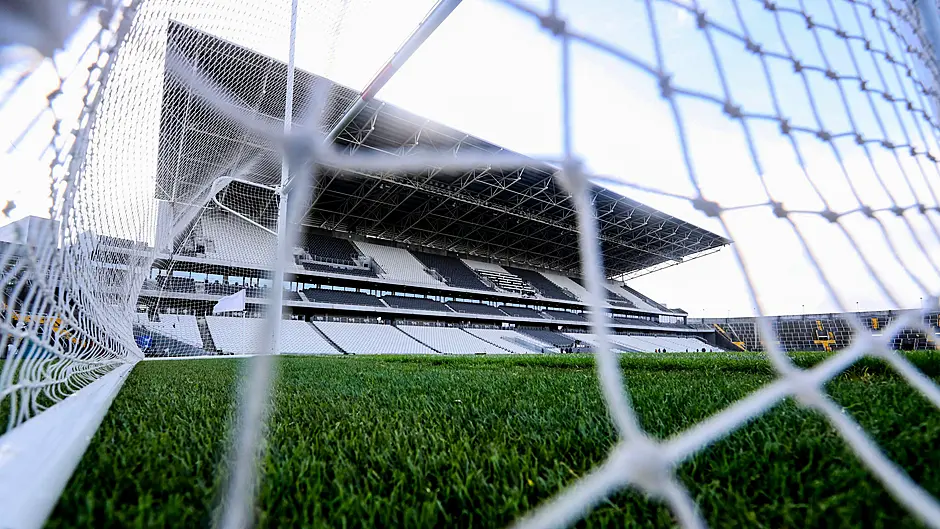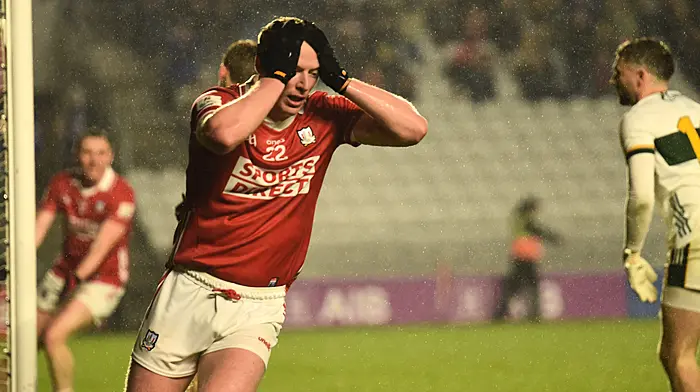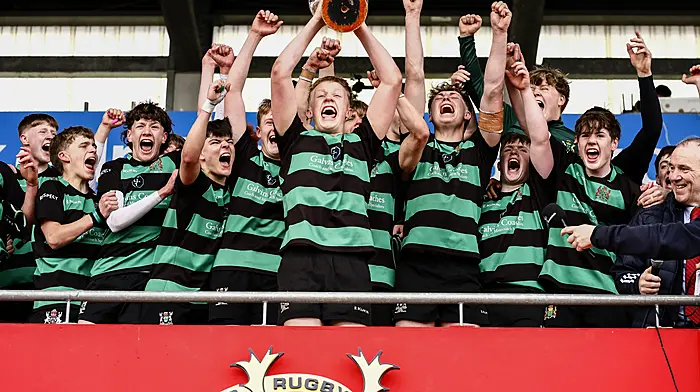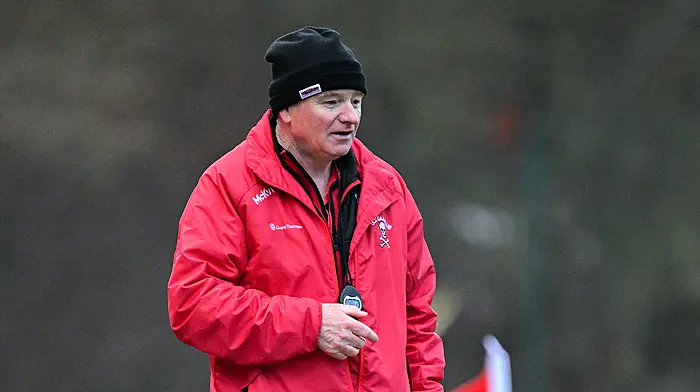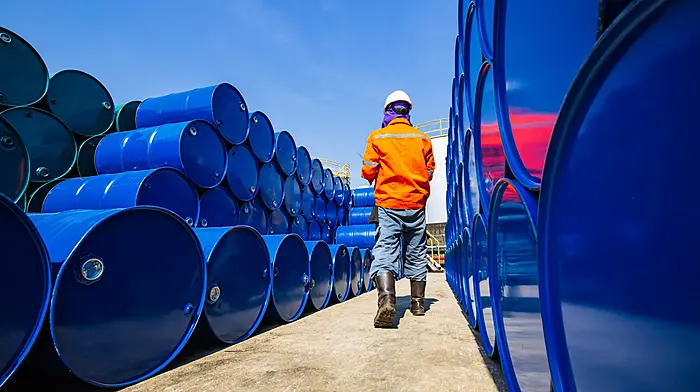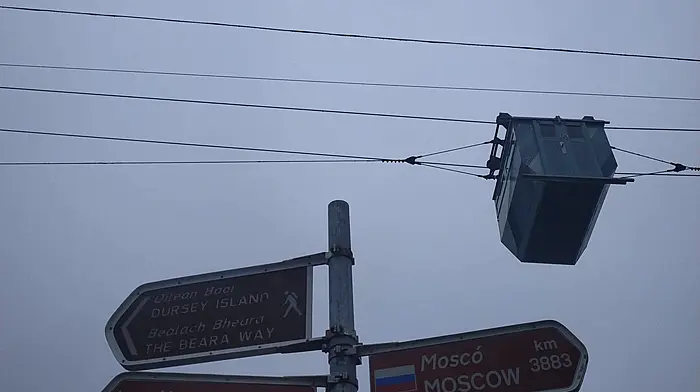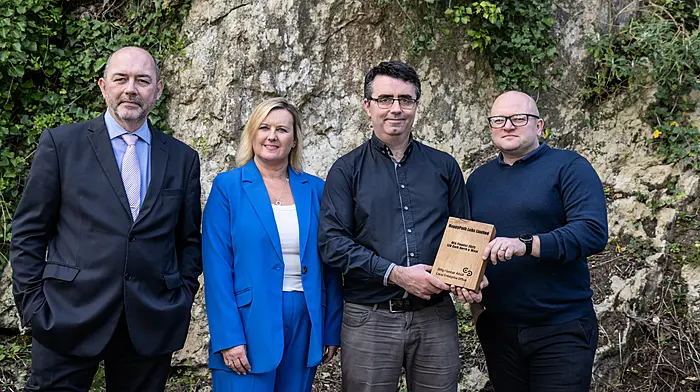A NEW long-term financing arrangement for Páirc Uí Chaoimh’s sizeable debt is on the cards, according to Cork GAA CEO Kevin O’Donovan.
That will allow the stadium to breathe, he insists, as Cork GAA will continue to make repayments for, at least, the next two decades on its state-of-the-art headquarters in the city.
It’s why securing non-GAA events like concerts or one-off rugby matches – such as Munster v Crusaders in February 2024 – is vital to taking a bite out of the legacy debt from the stadium redevelopment.
First, an update on the stadium’s debt.
‘Over €20 million due to Bank of Ireland and over €10 million due to Croke Park so debts of over €30 million,’ O’Donovan tells this week’s Star Sport Podcast.
‘We’ll hope to lower that by the sale of Kilbarry in the region of €6 to €10 million over the coming year. You’ll be left with an overhang of probably €25 million after that.’
He added: ‘We would like the sale of Kilbarry to happen in the next six months, but definitely the next 12. An Bord Pleanála has a backlog of cases to hear so we are in that queue.’
Once the sale of the Kilbarry site on the north of the city is rubber-stamped O'Donovan envisages ‘a long-term financing arrangement’ to be considered by the county board, the clubs, the stadium board and the GAA.
‘I’d expect that a long financing arrangement will be set then to allow the stadium to breathe and allow it to be met over a long period. Definitely, around two decades, to be that kind of arrangement. We have 2028 as a mid-term review point, but ahead of that I expect a mini solution to come,’ he confirms, as Cork GAA waits to discover this Saturday if it gets the green light to host another sell-out rugby game at Páirc Uí Chaoimh in 2024.
The stadium is ready, willing and able to host the novel clash of URC champions Munster and the Super Rugby winners Crusaders on February 3rd, 2024, if Central Council this Saturday gives it the go-ahead. O’Donovan is optimistic that Cork GAA will get approval, and that game will certainly sell-out, similar to the 2022 hosting of Munster v South Africa A.
Hosting non-GAA games like this, and events like concerts, help to take chunks out of Páirc Uí Chaoimh’s hefty debt. But as welcome as they are, Cork GAA can’t plan to host events like this every year; there’s a certain unpredictability to them. Take this year: no concerts or big events in the stadium. Look at 2022: Ed Sheeran, Elton John and Westlife all held concerts in the city venue, and there was the Munster v South Africa A sell-out, too.
‘This game (Munster v Crusaders) would be worth about two thirds of a concert to us. Albeit that it’s a much less intrusive event because you can have your pitch back playable a day after, which you wouldn’t after a concert but these are absolutely essential,’ O’Donovan explains.
‘All our business plans have this commercial activity plugged into them and they’re almost like windfalls. I’m moving to a stage now where we have got to be careful with those business plans because concerts and rugby matches are almost windfalls; they’re not something you should plan for, they’re not something you can schedule.
‘Concerts are very hit and miss. There were no concerts in Croke Park or Páirc Uí Chaoimh this year due to the nature of the touring and the size of the acts that came. You see very vibrant concerts in Musgrave Park and in the Marquee, but they’re below our level. Then you might see another one in Croke Park, which might be a capacity too high for our level.
‘We just find ourselves in that middle ground as well as the GAA season taking up a significant time of the year. I’m very much for those concerts being really important but us having a working business plan to reach break even in the years we don’t have them.’
O’Donovan added: ‘Our floor should not be having those and then there should be windfall events to help us reinvest on the stadium in the longer term but they’re absolutely vital.’
The importance of reducing the debt on Páirc is easier said than done, as highlighted earlier this year when Cork GAA received a ‘moratorium from Croke Park’ on their annual €500,000 repayment, with that money then used to pay the interest on the stadium loan to Bank of Ireland. While it had been reported as a ‘payment break’ for the county board, O’Donovan explains what unfolded.
‘Cork County Board has an annual payment plan with Croke Park on the Croke Park debt, the €10 million part, and we have a deal with them where we pay back €500,000 per annum from Cork County Board funds to pay that part and the stadium attempts to pay back the other €20 million to Bank of Ireland,’ he says.
‘We got a moratorium from Croke Park on paying that €500,000 back to them but it wasn’t a moratorium as such, that €500,000 went straight across the road, into the stadium to pay the interest on the stadium loan to the Bank of Ireland. There was a moratorium from Croke Park, from Cumann Luthchleas Gael, from the GAA, to allow us to put that money into the stadium debt because the stadium debt couldn’t be met by the stadium due to the lack of concerts.
‘It wasn’t that we got a holiday from Cumann Luthchleas Gael, they effectively are waving their right to their money for 12 months to allow us to focus all our repayments on the stadium debt.’
O’Donovan added: ‘The stadium has capital repayments at the moment of €250,000 per quarter plus interest. You’re looking at €1.5 million for the moment, that’s going to €2 million a year for the stadium, a stadium that does well to make €1 million profit in a concert year and it struggles to break even in a non-concert year. All those numbers are very challenging. They don’t particularly stack up but we are still meeting all our repayments with Bank of Ireland, which is essential because we have a good interest rate and Croke Park has given us a holiday on paying them back so that we can focus our efforts on the stadium.’

